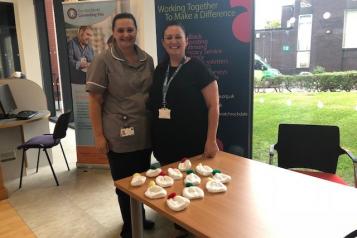£1.3 billion: the staggering annual cost of alcohol to Greater Manchester revealed as Mayor Andy Burnham invites residents to have their say on tackling the harm

Thousands of Greater Manchester children living with alcohol-dependent or binge-drinking adults, causing anxiety, worry and stress.
Residents encouraged to join in The Big Alcohol Conversation and help identify new actions for reducing alcohol's impacts across the city region
Harms associated with alcohol are costing Greater Manchester's public services £1.3 billion a year, new figures announced today reveal. Amounting to almost £500 for every resident, this is the annual amount we are paying through health, social care, crime and work costs because of the way we drink.
The stark figure was announced by Mayor of Greater Manchester Andy Burnham and the Greater Manchester Health and Social Care Partnership as they launched The Big Alcohol Conversation, a major new initiative exploring alcohol-related harm across the city region.
More than 22,000 Greater Manchester hospital admissions a year are directly caused by alcohol, while almost a quarter of our residents (23%) say that there is a big problem with people being drunk or rowdy in public places.
But beyond such visible signs, the hidden harms run deeper into our communities than is commonly recognised.
Higher earners are the most likely people to drink beyond the Chief Medical Officer's recommended guideline of 14 units a week. More than 1 in 3 men in wealthier households regularly exceed this recommended limit; over twice as many women in such households do so compared to those in the poorest households. Regularly drinking beyond 14 units a week increases the risks of a range of illnesses, such as cancers, heart and liver disease, brain damage and dementia.
Meanwhile, over 15,000 Greater Manchester children live with alcohol dependent adults. In addition, almost 1 in 3 under 16s have previously been estimated to live with at least one parent who binge drinks – the equivalent of 165,000 children across the city region.
While 90% of parents feel it is their responsibility to set a good example with their drinking, only half of children say their parents' drinking behaviour provides a positive role model. This insight – from a report by the Institute of Alcohol Studies – revealed that adults' drinking can result in feelings including embarrassment, anxiety, fear and poor emotional health and wellbeing among children, and that our permissive pro-alcohol environment has led to normalisation of drinking which masks these impacts.
In response to these findings, the Big Alcohol Conversation is examining the scale and nature of alcohol-related harm across Greater Manchester and identifying how it can best be reduced. The wide-reaching engagement exercise is looking to gather the views of thousands of people across the city region, learning more about the role of alcohol in their lives and communities and their opinions on ways in which a safer approach to alcohol can be secured.
Thanks to the city region's devolution agreement with central Government, a number of new potential options are available to help tackle alcohol-related harm in Greater Manchester. Possible actions which could be introduced subject to public support include additional restrictions on the marketing and sale of alcohol, increased information and education around related harms, greater opportunities for people to socialise without alcohol, and easier access to high quality support.
Any new measures would build on some innovative steps already introduced across Greater Manchester.
These include a pioneering Communities in Charge of Alcohol programme through which local volunteers are trained as community alcohol health champions to provide advice and help create a more responsible approach to alcohol in neighbourhoods that experience particularly high levels of alcohol-related harm.
In addition, the Mayor and his night-time economy advisor Sacha Lord has announced funding for an extra 150 Drinkaware 'crew' staff members in bars and clubs to promote a positive social atmosphere and help those who may be vulnerable as a result of drinking too much alcohol.
Greater Manchester is an amazing place to live and to visit, with a vibrant nightlife and a strong sense of togetherness. No-one is saying that people shouldn't enjoy themselves with a drink, but it's also true that alcohol abuse is causing more harm to people and communities than is often recognised. I'm calling on residents and businesses to join in our Big Alcohol Conversation as we seek to minimise alcohol harm.
Sarah Price, executive lead for population health and commissioning in Greater Manchester, said: "Alcohol is having serious impacts on our residents, our communities and our public services. But just as important are the hidden harms – affecting many more individuals and their families than is often recognised. The Big Alcohol Conversation is all about identifying the scale and nature of these harms, and coming together to help tackle them".
Sacha Lord, Greater Manchester's night time economy adviser and Warehouse Project and Parklife co-founder, said: "Responsibility for the harms of alcohol is so often placed at the doors of pubs and clubs and many of our younger visitors. But through initiatives such as the Greater Manchester Operators' Standard – a first for the UK – our city region's hospitality sector is leading the way in improving the way we do business. There is an increasing trend of many of our younger customers drinking more responsibly. We need to build on this and encourage similar shifts in behaviour across the alcohol industry and our wider society. The first step in this is talking with people. That's why I'm backing the Big Alcohol Conversation and calling on my industry partners to support it too".
James Carter, a Communities in Charge of Alcohol (CICA) volunteer alcohol health champion from Salford, said: "I started drinking with friends in the 90's. It was just a bit of fun and it didn't seem a problem – but it became every day. After I had an internal bleed, I thought 'I'm not going to drink anymore'. The first year was really hard, I didn't seek the help I needed. When I did go to my local support service, it was a slow process, I was fighting a battle and just hoped I could make it through. After I received so much help I thought I want to use the knowledge I've got to give something back'.
The Big Alcohol Conversation is running until the end of February 2019. People can get involved by visiting www.thebigalcoholconversation.org, using #GMbigalcoholconversation on social media, or by attending a Big Alcohol Conversation bus tour roadshow which is calling at 20 prominent locations across the city region. The first round of visits is as follows:
Friday 16 November, 10am-6pm – Salford Shopping Centre car park, Pendleton Road
Saturday 17 November, 9am-5pm – Bolton Town Hall, Victoria Town Square
Sunday 18 November, 9am-5pm – Piccadilly Gardens, Manchester
Wednesday 21 November, 10am-6pm – Oldham Market
Friday 23 November, 9am-5pm – Ashton Markets, Bow Street, Tameside
Saturday 24 November, 9am-5pm – The Rock shopping centre, Bury
Sunday 25 November, 11am-7pm – REDROCK centre, Stockport
Wednesday 28 November, 10am-6pm – Smith Street, Rochdale
Saturday 1 December, 9am-5pm – Bradshawgate, Leigh Town Centre, Wigan
Sunday 8 December, 9am-5pm – Stretford Mall, Trafford
Views gathered during the Big Alcohol Conversation will contribute to Greater Manchester's 'Ambition for Alcohol', a high-level plan of action for tackling alcohol-related harm across the city region due to published during 2019.

